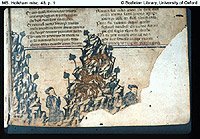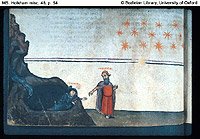Hereafter
[The following will probably appear eventually in Good News, the magazine of the Diocese of Connecticut and is provided here for those who don’t want to wait or who won’t get it no matter how long they wait.]
A friend forwarded an e-mail question last week that had come from a parishioner: “What should I read to learn about eternal life?” I e-mailed back the suggestion that she read the Bible. I suggested specifically Romans 15 and John 11. I added references to Augustine, Aquinas, and John Donne. The next day Peter Hawkins’ new book* arrived in the mail and the subtitle suggested that this might be another answer to the question. Well, as the Hertz commercials used to say, “Not exactly.”
I saw that the book was based on the Lyman Beecher lectures on preaching at Yale and thought the book might be about preaching on heaven. But “not exactly.”
If, on the other hand, you have always thought you ought to read Dante’s Divine Comedy just because, like Mt. Everest, “it’s there” and maybe you even tried to once but got bogged down in the Borgias and various obscure Italian bishops, this book might rekindle your interest.
Peter Hawkins loves Dante and has written other books about Dante. This time he sets out to offer his readers a way to think about “the life of the world to come” by way, primarily, of Dante. Certainly no one has ever provided so clear a map to that world as Dante. It’s all there in three intimidating volumes: Hell, Purgatory, Heaven. You have to make your way past a gruesome variety of medieval Italians suffering for their failures to get even into Purgatory and then climb the seven-storied mountain of rehabilitation in order to come even close to the Beatific Vision. And when (if) you make it all the way, it’s not at all what the Bible offered. No gates of pearl and golden streets and saints falling down and incense going up, but just Beatrice with her Mona Lisa smile and a rose unfolding and something about the love “that moves the sun and the other stars.” But Hawkins gives us a road map, a perspective, that might move you to try again and even if not, he helps us see what Dante is up to and why it matters.
And it does matter. There are comments along the way – probably sadly valid – about the inability of most preachers to be articulate on the subject of life hereafter, but is “life without illusions,” Hawkins wonders, “interesting enough to support life in the here and now?” Isn’t it critically important to look at life here “sub specie eternitatis,” in what Donne calls “the light of glory,” in order to get through the day? We’ve had presidents who mocked “the vision thing” – and look at the mess we’re in as a result.
I think it was Dorothy L. Sayers who said, “The best kept inns are on the through roads.” It’s the people who know where they’re going who make a difference in the places they stay because they aren’t that easily satisfied. Our pictures of heaven are all, of course, inadequate, but we need them to keep open a sense of possibility: that we are called to be something more and the time to start is now.
That’s enough for one book, but this book gives us a bit more than just Dante. Hawkins provides another perspective by showing us how Lyman Beecher’s son, Henry Ward Beecher, once called “the greatest man in America,” over-reacted to his father’s frightening views of hereafter by providing a prime example of what happens when the “vision of Eros run amuck.” There’s a bit in the same vein about Tammy Fay Bakker and more edifying appearances by Frederick Buechner, Marilynne Robinson, Wallace Stevens, John Donne, and, of course, Augustine.
If all that sounds heavy, be assured that it isn’t. Hawkins writes with clarity and grace and invites us along on a guided tour worth taking. It’s too late now for Lenten reading but not too late for summer reading or to use as a resource for Advent sermons on the four last things. This is a book not exactly like anything you have read before but exactly what we need to rekindle the vision that ought to shape our lives.
*Undiscovered Country: Imagining the World to Come, Peter S. Hawkins, Seabury Books, 2009.


 Christopher L. Webber
Christopher L. Webber